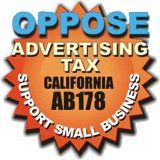 ADOTAS - “We are seen as the ugly stepchild of online marketing,” Jivan Manhas of MediaTrust told the crowd at the Performance Marketing Leadership Summit hosted by OfferVault. “We call it performance marketing because the term affiliate marketing is tainted.”
ADOTAS - “We are seen as the ugly stepchild of online marketing,” Jivan Manhas of MediaTrust told the crowd at the Performance Marketing Leadership Summit hosted by OfferVault. “We call it performance marketing because the term affiliate marketing is tainted.”
No one in the packed room at the DoubleTree in midtown Manhattan disagreed. It’s no secret that during the past 18-20 months, widespread fraud has greatly harmed ad networks and advertisers — and given them an ugly reputation. Big-budget advertisers are staying on the sidelines.
The solution seems to be for everyone in the segment band together to fight fraud. So who first?
Uniting is a tough proposition for ad networks as they fight tooth and nail for their best publishers and aren’t keen on sharing them. The network space has been fragmented for a long time and communication channels are lacking if they even exist. In general, networks have been too reactive Manhas lamented.
“Our industry has dropped the ball on this issue,” he said. “We got all excited about the numbers, but no one has built the technology to really take advantage…. We should have had antifraud tools built into platforms years ago.”
And the scammers have become so arrogant as to openly advertise for CPA network accounts on sites like Twitter.
“These guys are living like kings,” he said. “They probably have hundreds of accounts and are just milking them.”
MediaTrust has found a way to wipe most of the fraud out of its network, but it hasn’t been a pretty process. Manhas noted that 95% of fraud derived from unverified publishers; so MediaTrust simply separated the good eggs from the bad eggs — they demanded each of their publishers provide them with referrals. Those who couldn’t comply were shown the door.
The company was given a hard time on many advertising forums, but ultimately the purge was successful. The few good publishers improperly kicked out came back and stated their cases, and ultimately rejoined the network.
However, the industry needs standardization to really take a bit out of this crime. Law enforcement officials aren’t considered a viable option as the fraud is difficult to explain and many scammers are internationally located.
A blacklist? What criteria would force an affiliate on it? There was little agreement. A whitelist? How would you manage such a thing and maintain network privacy? A third party? But who would run it?
Manhas saw potential in HitPath’s recently released tracking solution, which shared blacklisted publishers with other websites. But he advocated for a third-party agency similar to the Interactive Advertising Bureau (which he noted was not set up to monitor performance marketing), but more specific to the cause. He cited the Performance Marketing Alliance, but called it only a starting point that needed industry support.
“We must lead the charge to build an industry association,” Manhas said. “Industry leaders have to come together to fight fraud.”
This sentiment seemed to be shared throughout the room, but the path to making that happen was up for debate. Until a universal solution is found, ad networks have little choice but to be extra vigilant in vetting the affiliates on their networks. As MediaTrust found, a purge could do a network a lot of good.







No comments:
Post a Comment